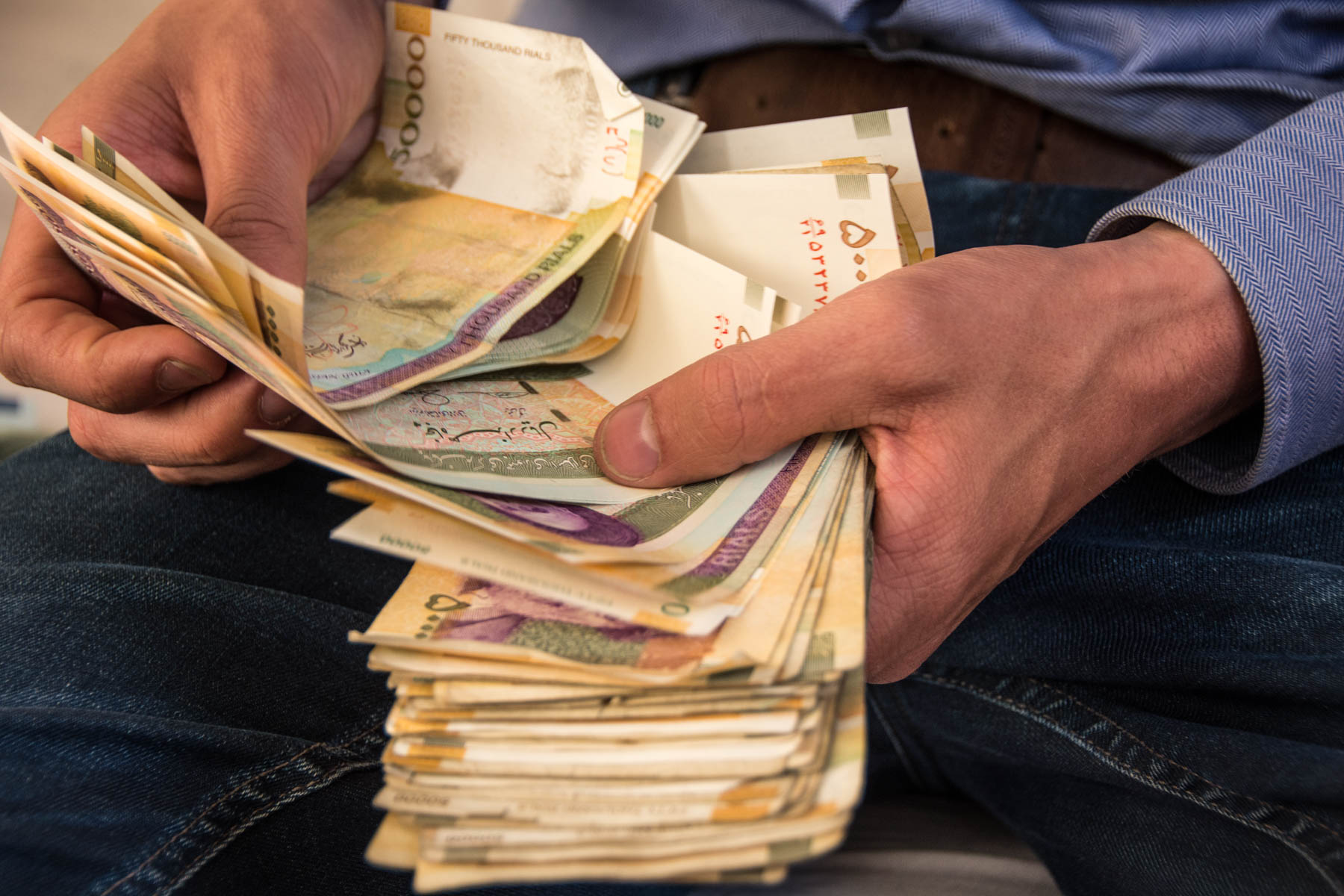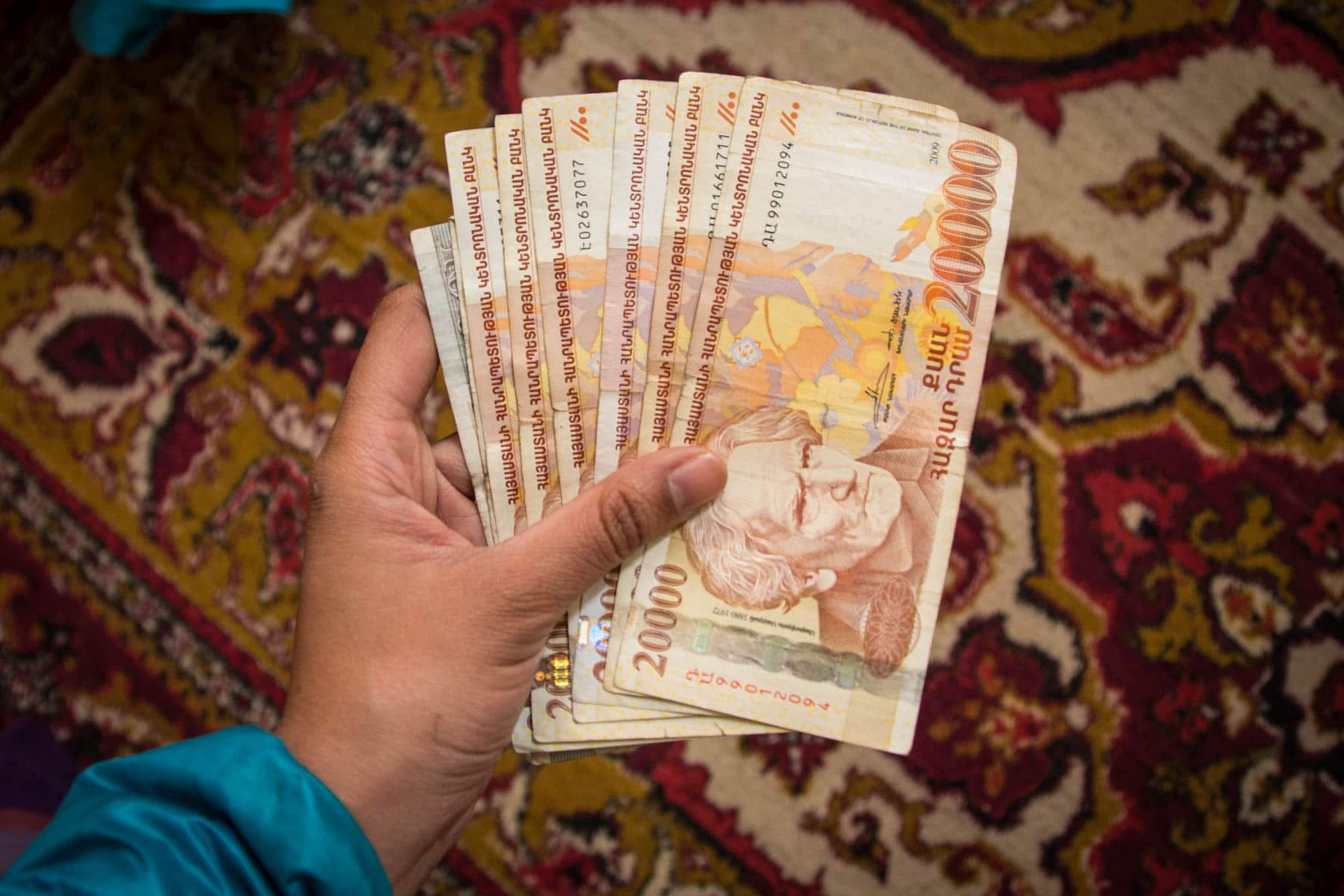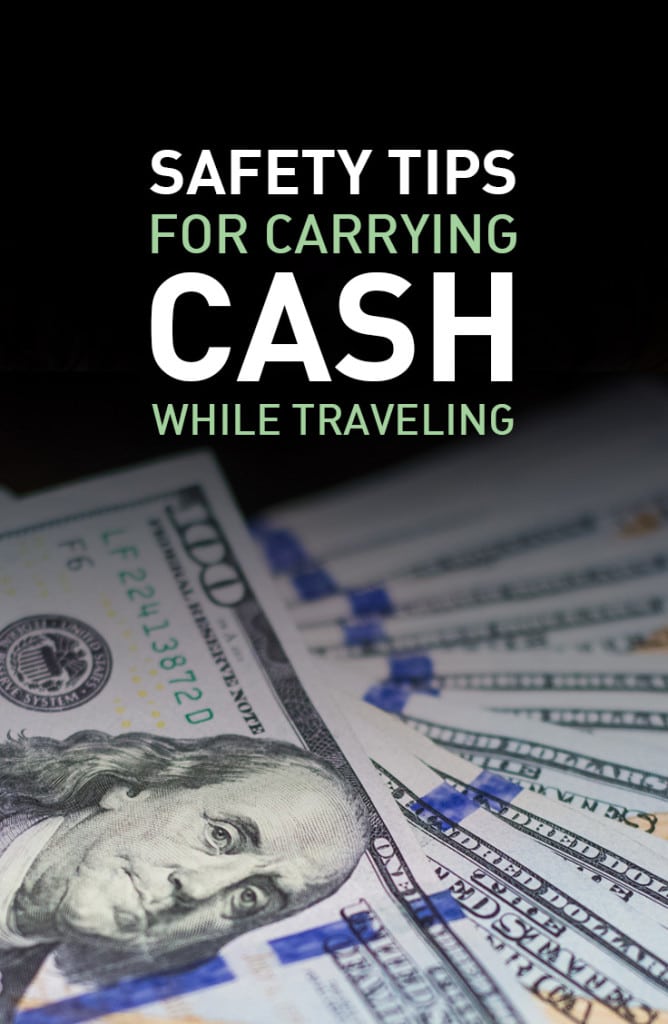Safety tips for carrying cash while traveling, and how to get large amounts of cash for your travels. Useful for people traveling to countries without ATMs such as Iran, as well as anyone that likes to roll deep with their dough.
You don’t often need to take large sums of cash with you while traveling. Most countries have ATMs that take international credit and debit cards. However, there are still a select few countries that, because of sanctions or poorly functioning banks, aren’t yet connected to the global card system.
We had to carry all of our cash for a month when we went to Myanmar/Burma in 2012 (though we hear they have ATMs now), and now we need to do so again in Iran. Trust us: we understand how uncomfortable it can be to walk around with large amounts of cash/your only lifeline on you. Here are some tips for getting your cash, and keeping it safe once you have it.
Safety tips for carrying cash while traveling
Don’t have all your money in one place.
If anything happens to you while traveling, such as being mugged or having someone steal your bag, you don’t want to lose all of your funds in one fell swoop. Putting a couple of “emergency stashes” of money in different places deep within your bags, such as in socks or tucked in a book, should be high on everyone’s travel checklist. Don’t accidentally lend the book out to someone, either 😉
Carry a money belt.
We always, always use money belts when carrying cash while traveling and our passports wherever we go, as we personally don’t believe in leaving passports or money in our room. They’re almost invisible, and can’t be pickpocketed. Don’t leave home without one–they’re cheap, now have RFID protection, and are one of the most important investments you can make for your travels.
A “decoy” wallet with smaller change is also handy.
Carry a wallet with a bit of change and some fake cards, in the event that you do get mugged, they’ll take your wallet, and won’t search further for your money belt.

Allll the dolla dolla bill$. Too bad we can’t tell anyone about it.
Don’t trumpet the fact that you are carrying cash while traveling.
It’s great that you have a bajillion cocaine-worthy Benjamin Franklins in your pocket, but keep it on the DL. You don’t want people to know how much money you’re carrying, as it might attract unwanted attention.
Before going to an exchange, count the money you want to change somewhere private, and put it aside.
This way you don’t have to show the vendor (or any other unwanted, unsavory peepers) how much cash you are carrying, and don’t have to fumble with too many bills during the exchange.
Still working on making enough money to travel? Here are the 5 steps we took to save enough money to travel for 1 year.

Ah, the Iranian rial, a royal pain to carry. $1 = 34,000 rials!
Getting cash before you go/when traveling
If you are not taking your local currency, shop around for the best exchange rates.
In most cases, you will have to bring US dollars, and rates can vary widely between exchange bureaus and banks, and even between branches of the same bank. Make sure to shop around.
Note: in the Netherlands, Pott Change had the best rates. If you plan to change more than €2500, give them a call and they will give you a slightly better deal than the one on their website.
Inform your bank and temporarily change your card’s limit before withdrawing large amounts of money to exchange.
In the Netherlands, this is usually set at €2500. Doing this can help prevent you from having your cards blocked, which happened to me right after changing euros to dollars.
Familiarize yourself with customs formalities when it comes to taking money in and out of the country.
Depending on how much money you’re carrying, you may need to declare your funds at customs when traveling in/out of countries. In many countries, you need to start paying attention when carrying around $10,000 or more.
Know the proper exchange rate for the local currency.
Not all money exchanges are equal–it pays to shop around before changing. Oftentimes airport exchanges and exchanges at borders, particularly the first ones you encounter when exiting, have terrible rates. If you must change there, only change small amounts–enough to get you to an actual exchange.
If you have any knowledge about foreign exchange markets, keep an eye on these. It won’t make a huge difference, but you can save some extra money if you change when your currency is up compared to the currency you wish to get.
When dealing with unofficial local money changers, bargain.
They’re on the black market, so why not play their game? They often quote you a rate that’s a bit (or a lot) favorable to them, but if you confidently counter with a reasonable rate, they’ll give.
Check what the condition of the notes must be, and be gentle to them.
Often exchanges won’t accept foreign notes that are too battered or damaged, so be careful when handling your money. For Myanmar, we explicitly needed crisp, new, unfolded bills. For Iran, it doesn’t really matter, as long as the bills aren’t torn.
Good luck!
Hopefully, these tips will help you carrying cash while traveling safely, and help you get the best deal when changing money at home or abroad. Remember, most people are not out to rob you… but always keep your wits about you.



